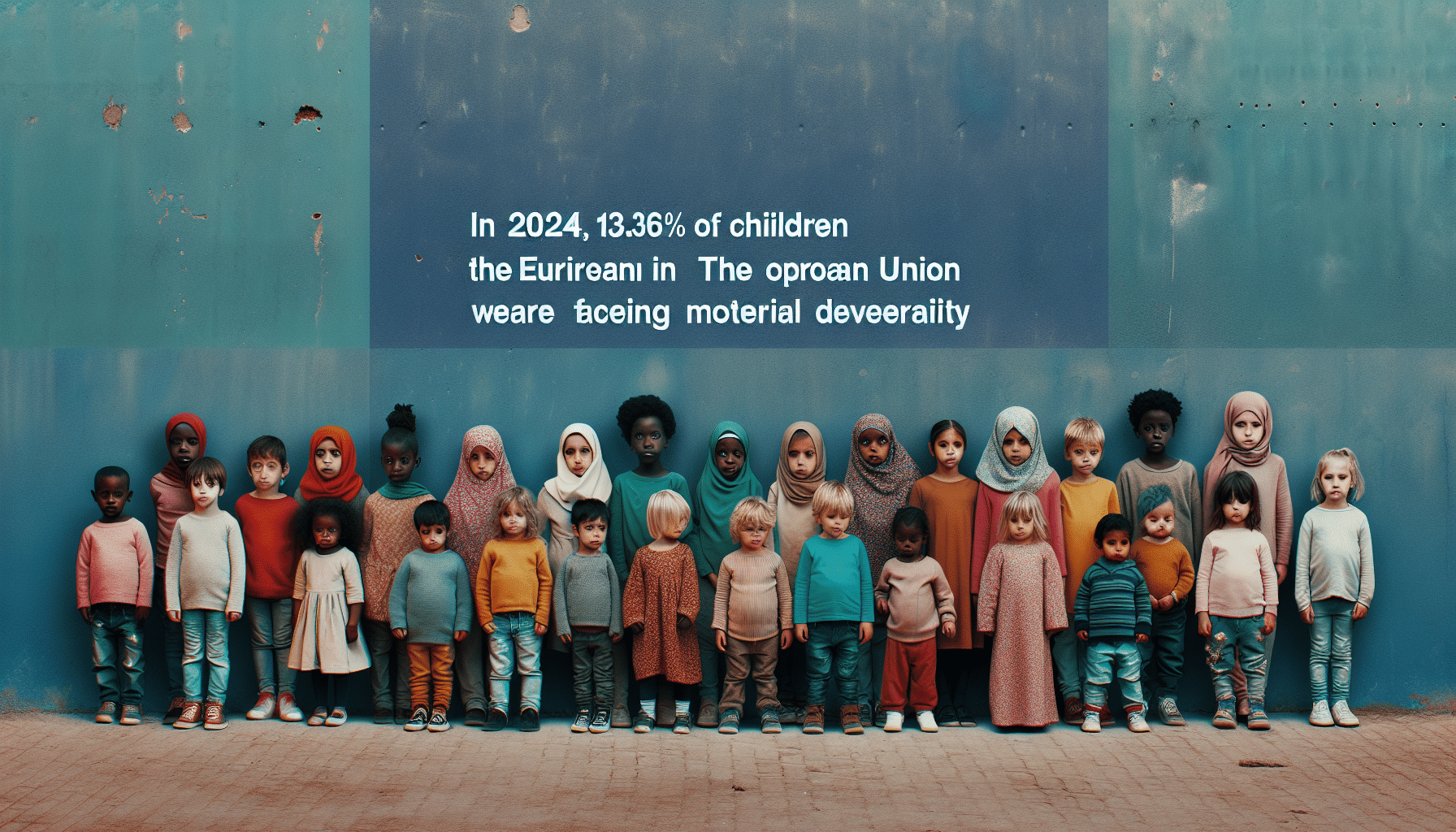Here’s the translation to American English:
—
In 2024, approximately 13.6% of children under 16 in the European Union were experiencing material deprivation, meaning they lacked access to at least three of the seventeen goods or services considered essential to maintain an acceptable standard of living. This alarming figure highlights a concerning reality, particularly in certain countries where deprivation rates are especially high.
Data indicates that Greece leads this trend, with 33.6% of its children affected, followed by Romania at 31.8% and Spain at 20.5%. At the other end of the spectrum are countries with the lowest incidence of child material deprivation, such as Croatia (2.7%), Slovenia (3.8%), and Sweden (5.6%).
One of the most revealing findings is the strong correlation between parents’ education level and their children’s material deprivation. Only 5.6% of children whose parents have tertiary education face this situation, compared to a concerning 39.1% among those whose parents have at most lower secondary education. In this regard, countries like Slovakia, Bulgaria, and Greece have the highest rates of material deprivation among children of low-educated parents, reaching figures of 88.6%, 84.1%, and 77.2%, respectively. In contrast, Poland, Luxembourg, and Sweden stand out for having lower rates, ranging from 9.1% to 12.2%.
Statistics also reveal significant disparities among households where parents have tertiary education. Greece, with 17.6%, Spain with 11.6%, and Bulgaria with 8.1%, are the countries where the most children in this category face material deprivation. In contrast, Slovenia, Croatia, and the Czech Republic are notable for their exceptionally low rates, ranging from 0.6% to 0.8%.
These data not only underscore the economic inequality that persists in Europe, but they also invite deep reflection on the direct influence of parental education on their children’s well-being. The fight against child material deprivation represents an urgent challenge that demands immediate attention, and it is essential that public policies focus on improving access to education and resources for all families, thus contributing to building a more equitable future for the youngest.
—
Feel free to let me know if you need any further assistance!
Source: MiMub in Spanish











